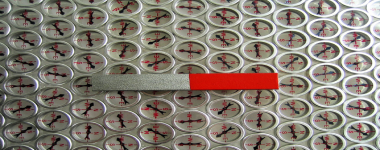by Jörg Wiegratz, The Conversation
We’re getting rather used to revelations about sharp practice in the banking sector. The row about HSBC’s tax services to rich clients has raised, yet again, crucial questions about the business culture which allows such scandals to emerge. One common idea is that those involved have lost their “moral compassâ€
 and succumbed to the imperative of pure greed as they employ subterfuge to do things which end up doing harm to the general public.

There is a problem with these approaches. Those who use the “greed-hypothesisâ€tend not to define what they mean by “greedâ€, as distinct from normal material interest or motivation, nor do they have empirical data to show how greed operates to cause all this turmoil in our economy. But that is for another day perhaps, as here I want to focus on the “immorality-hypothesisâ€; to unpack it and argue that fraud in the City does not, in fact, reveal the absence of morals, but the presence of particular moral views and preferences.
You and I might dislike those moral mind-sets and priorities, but exploring them is essential if we are to understand banking.
This poses an intriguing question: what are these morals, where do they come from and why have they apparently become dominant in some businesses and sectors?
Noble pursuits
First, consider this recent statement by Labour MP Michael Meacher:
The revelations of greed and cynical immorality … keep pouring out of this HSBC Swiss bank scandal, one of the biggest of the last few decades since this is probably only the tip of the iceberg on bank wrongdoing in this no-holds-barred era of crooked capitalism.

Glowing. HSBC Ania Mendrek, CC BY-ND
Here greed, cynicism and immorality explain “wrongdoingâ€. This analysis typically leads commentators to suggest that business needs to find that lost moral compass and adopt a moral business purpose. The idea is that a form of fair capitalism and just society will arise.

